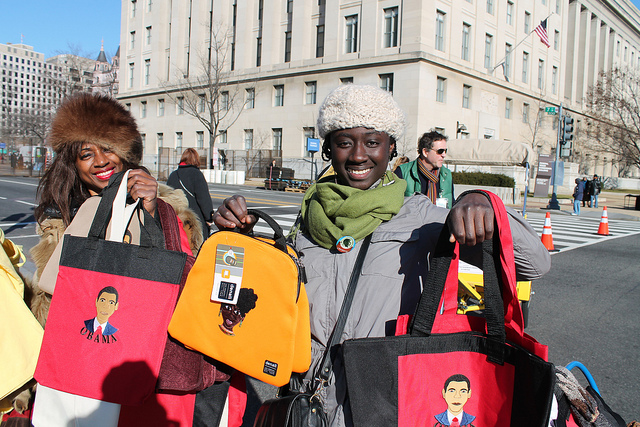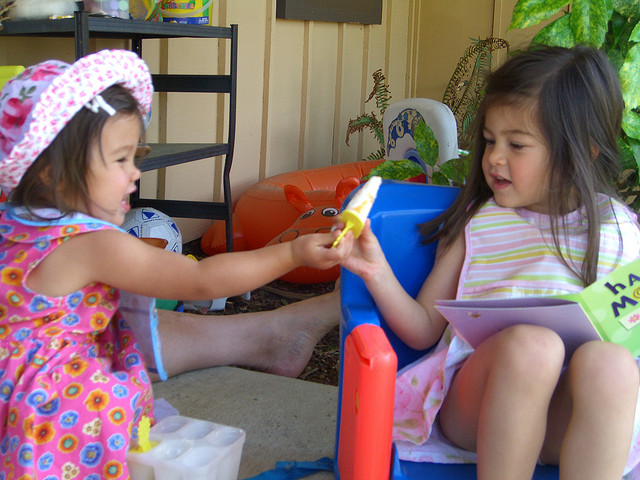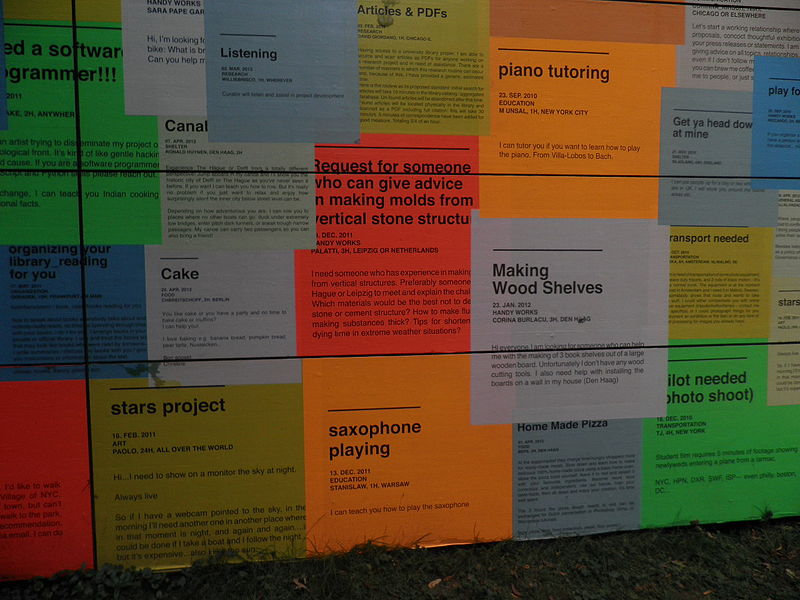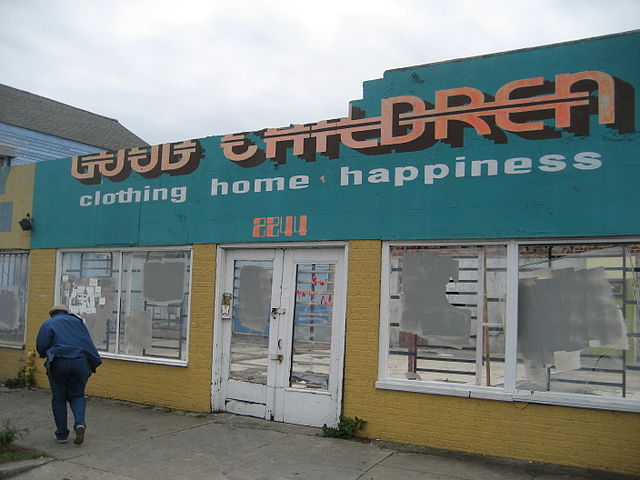
Why should Girl Scouts get all the breaks? How we can unleash our hustler economy

Why should Girl Scouts get all the breaks? How we can unleash our hustler economy

A relationship-based economy asks us to rethink our assets, both what they are and how we use them. In my last post I talked about how timebanking allows us to take advantage of our intangible assets. This week I want to talk about how we can take advantage of our own and our community’s physical assets, better known as “stuff.”
Think of your house. How much of your stuff goes unused on a daily, weekly, monthly, or perhaps even on an annual basis? Now imagine if you could get something in exchange for sharing those items when you’re not using them. Imagine if you could have borrowed those items from someone else in the first place and spared yourself the expense of having to buy your own. The infographic below shows how your home might be a secret cash cow with new websites that facilitate sharing:
A perfect example of an underutilized asset is your car. In North America, most people only use their car 8 percent of the time. That leaves a lot of time when it’s sitting around and could be used by someone else. RelayRides allows users to rent their car to car-less people in their area. Another car-sharing company, ZipCar allows people to ditch the car all together and rent vehicles by the hour when they need them.
Perhaps my favorite sharing start-up is Karma. For most of the day my wifi at home sits unused. Karma is wireless system where you pay by gigabytes used. What’s great is that anyone else can log into my home hotspot and pay a fee to use it. If that happens I get a credit that I can use at my own hotspot or anywhere else I find Karma. Not only does Karma open up my hotspot to others but it opens up tons of new places I can go to access wifi as well.
When I think of unused gadgets in my home, my thoughts automatically go to the kitchen. While I love my pasta maker, tortilla press, and ice cream maker, the truth is I don’t use them every day or even every week. Imagine having a cooking library where I could rent these things out when I need them. There are already tool libraries around the country where people can check out the tools they need. Really, how much use can you get out of a tile saw once you’ve finished your bathroom renovation?
The sharing economy is not only transforming how we live but how we work. In co-working spaces people come together to share office space and supplies. Recently, I had a chance to visit Virtually Sisters, a new co-working space in Staunton, Virginia. Artists, consultants, nonprofit staff, entrepreneurs, and sundry others come together to share a store front that is transformed into an office space, a meeting room, an art gallery, bike parking, a pop-up retail store, a classroom, a production studio and more. The space allows everyone to be able afford a store front on main street.
Another great co-working idea is Incu-BaKe, an industrial kitchen shared by food entrepreneurs. In addition to a kitchen, Incu-BaKe clients are able to share ideas, connections to local suppliers, and business clients. Co-working spaces helps businesses succeed by cutting down on costs, building collaborations, and accessing new resources.
With the current state of the economy many of us are forced to go without a lot of luxuries A sharing economy increases the resources available to people in the community without actually creating new resources. It’s a perfect example of the ability of a relationship-based economy to increase prosperity without dramatically raising income. It lowers the cost and increases the accessibility to the tools we want or need for life and work. Furthermore it builds relationships where we can share more than just stuff, we can share ideas, networks, and friendships.
By sharing we rethink prosperity: no longer is it something to be built and enjoyed by the individual, but something we can build together. Through sharing we can find and use our community’s assets to meet our needs and meet new people along the way, which improves the quality of life for everyone. It’s a great example of how the solution to the economic crisis may not solely be figuring out how to increase the amount of monetary wealth a person has, but rethinking how we use the wealth that already surrounds us.

A time bank is an alternative system that exchanges hours at a one to one ratio. That means for every hour you give to someone through the time bank, you get an hour back to give to someone for an hour of their time. For example, say you join the time bank and find a woman who needs cooking lessons; you offer to help her out. For your hour of instruction on the finer points of the culinary arts you receive an hour you can now spend on learning how to sail from another time bank member.
Time banking allows us to exchange with our neighbors in a different way and recognize assets that are often swept under the rug in a traditional economy. Here are a couple perks of joining a time bank in your community:
Are you convinced? This directory from Time Bank USA can help you find a local time bank. If there’s a time bank in your community, join it and start exchanging. If not, maybe one of your new year’s resolutions can be to start a time bank in your home town.

Last week, my friend Ryan Schuette and his fiancé Tara Smith launched Cherie Amie, a lingerie company which reminded me of the value of fair trade companies in forging a relationship-based economy. When we focus on local business solely, we forget that Read More

It’s December! Time for parties, singing, cookies, ugly sweaters, lighting candles, dancing, and cheer. The fact is, ’tis the season for celebration and tradition, whether you are a willing participant or not.
For me, December 1st rarely passes without sitting down for my favorite tradition at the start of the holidays: The Muppet Christmas Carol. It’s an oft told story (though best told by Gonzo): an old miser gets visited by ghosts and convinced to be more generous. On one of his midnight rides, the miserly Scrooge returns to his past to a Christmas party thrown by his former employer, Fezziwig. Read More

Local currency can be a great way to keep money in your community and support the amazing businesses that make your town unique. However, every alternative economic system comes with its own legal considerations.
Enter Bernard Von NotHaus, the architect of the Liberty Dollar, a private currency. Last year he was convicted of counterfeiting and labeled a “domestic terrorist,” by the FBI. Since the Liberty Dollar is an alternative currency, akin to the BNote, Bay Bucks, and other local currencies, several have raised the: “Are we doing something illegal too?” question.

Around the country many communities are facing the same problem. In front of them is the abandoned mill, plant, or factory, formerly the lifeblood of their town, gone out of business or off to a more attractive location. Their city is faced with the difficult task of filling the void. Welcome to the exciting field of economic development. Read More

Photo: Woods Pierce
The economy is the most talked about topic of this election. It should be. I grew up in Michigan right next to a GM plant and graduated from a high school across the street from another. By the time I graduated from college both of those plants were closed. The 7.8 percent unemployment rate is not a statistic for most of us, it is part of our daily existence.
“Economy,” comes from ancient Greek and literally means “management of the home.” The root word “oikos” is a broad definition of home, including our family, house, our household goods, and our entire private life. In its purest form an economy is how we manage our daily existence and meet our needs for food, shelter, love, and comfort.
The economy does not mean “how do I make more money?” but “how do I live?” To me that is a question that is far more interesting and useful. During this recession many of the people in our community are having trouble meeting basic needs and I don’t think we have to wait until the outcome of this election to start solving this problem.